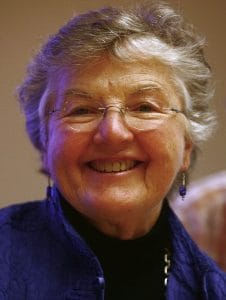After growing up on a farm in Peru, N.Y., Allen went to college to be a teacher. With a bachelor’s in mathematics in hand, she returned to her home town to teach. But she yearned for more, and went to the University of Michigan for a master’s in math, but was left in such debt she needed a better-paying job, and joined IBM Research in Poughkeepsie as a computer programmer.

Her bosses were impressed with her contributions to the Harvest Project — a code-breaking program at the U.S. National Security Agency using a custom-built IBM 7950 “Stretch” computer. Allen specialized in compilers, which translate high-level programming languages into machine code. NSA itself found that the Harvest machine was more powerful than any other computer at the time by a factor of 50-200, depending on what it was doing. So impressed that they transferred her to the Thomas J. Watson Research Center, where she worked with IBM researcher John Cocke (the “Father of RISC Architecture”) on improving compilers even more, co-authoring a number of seminal papers with him.
That left Allen in high demand, teaching for a year at New York University, and then another at Stanford. She later led IBM’s work to develop parallel computing, and was elevated to IBM Fellow in 1989 — the first woman to be so honored — and named an IEEE Fellow in 1994. While Allen planned to work at IBM only long enough to pay off her student loans, Allen stayed at the company for 45 years, retiring in 2002. In 2006 she was the first woman to receive the Turing Award, recognizing her “enormous impact on compiler research and practice” which “introduced many of the abstractions, algorithms, and implementations that laid the groundwork for automatic program optimization technology,” and “laid the conceptual basis for systematic analysis and transformation of computer programs.” (And that’s just the first quarter of the Turing citation!) She died August 4, her 88th birthday, from Alzheimer’s disease.
